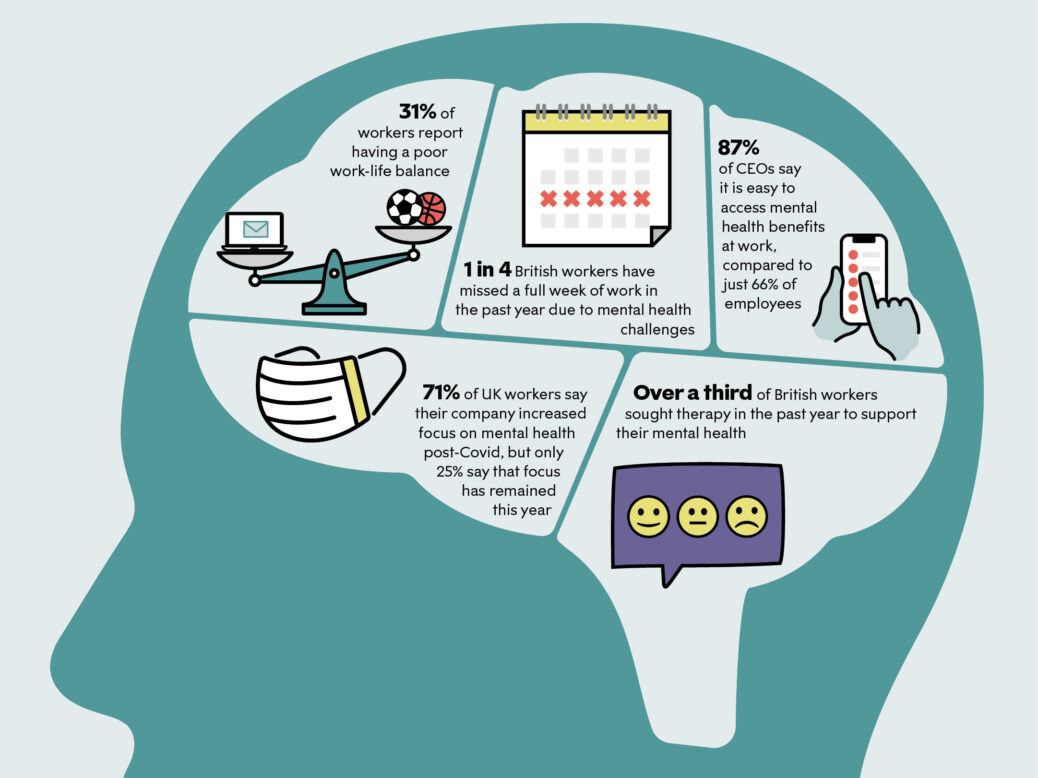
A hybrid working model may have freed many from the full-time shackles of the physical office, but it has not alleviated stress. The blurring of work-life boundaries and a heightened expectation to be “available” has created an altogether new version of presenteeism.
Indeed, a poor work-life balance is a major factor in the very high rate of UK employees – nine in ten – who say they experience “moderate to extreme stress” on a weekly basis. The figure comes from a study of 500 CEOs and 5,400 employees by mental health platform Headspace Health, which also found that one in four have missed a full week of work due to mental health-related absence over the past year. As labour economist Richard Layard explains, this is bad for the country as well as individuals, amounting to a £100bn annual economic loss.
Current societal issues are exacerbating the problem – the “Great Resignation” has caused nationwide staff shortages, while the ongoing cost-of-living crisis has inevitably led to more money worries, as wages fail to keep pace with consumer prices. Respondents cite being overworked and understaffed as a significant contributor to their stress, alongside financial concerns.
Through all this, one in three British workers feels their employer does not do enough to support them, according to the Headspace Health study. It found that the number of UK workers who believe their company prioritises mental health has dropped starkly since 2020, from 71 per cent to 25 per cent.
There is a clear disconnect in attitudes between staff and C-suite. While most CEOs (94 per cent) think they do enough to support their workers’ mental health, only two-thirds (67 per cent) of employees agree. Managers are also benefitting more from available resources – nearly two-thirds of CEOs use their company’s mental health benefits regularly, compared to a third of employees.
Perceptions are changing. The number of CEOs who feel comfortable talking about their own mental health at work has more than tripled since last year. But despite a more open national conversation around mental health, cultural attitudes of “keep calm and carry on” appear to persist in the UK. To empower more people to confront their workplace stressors, managers have a duty to create an open environment where they feel able to do so.




